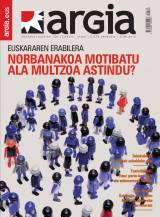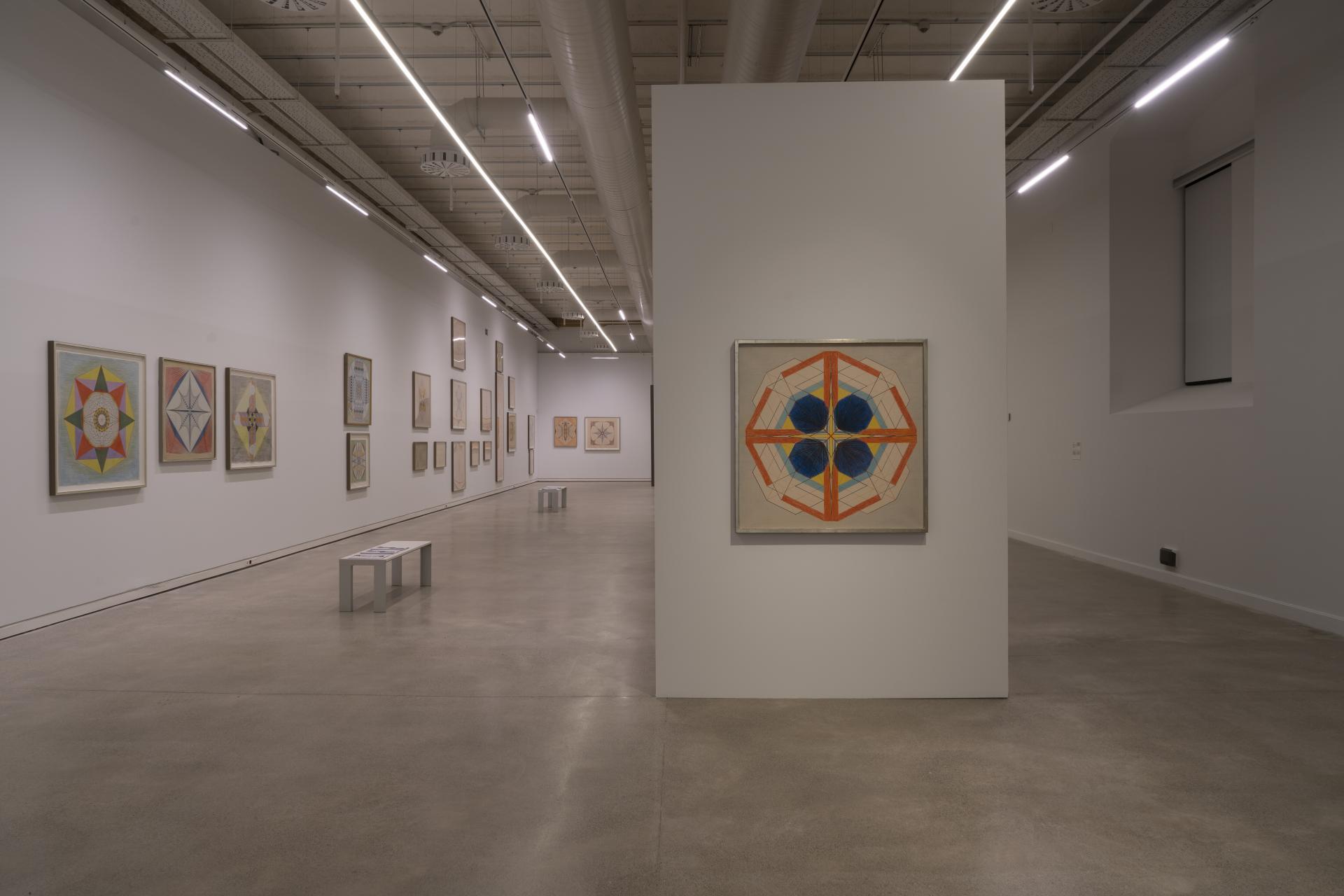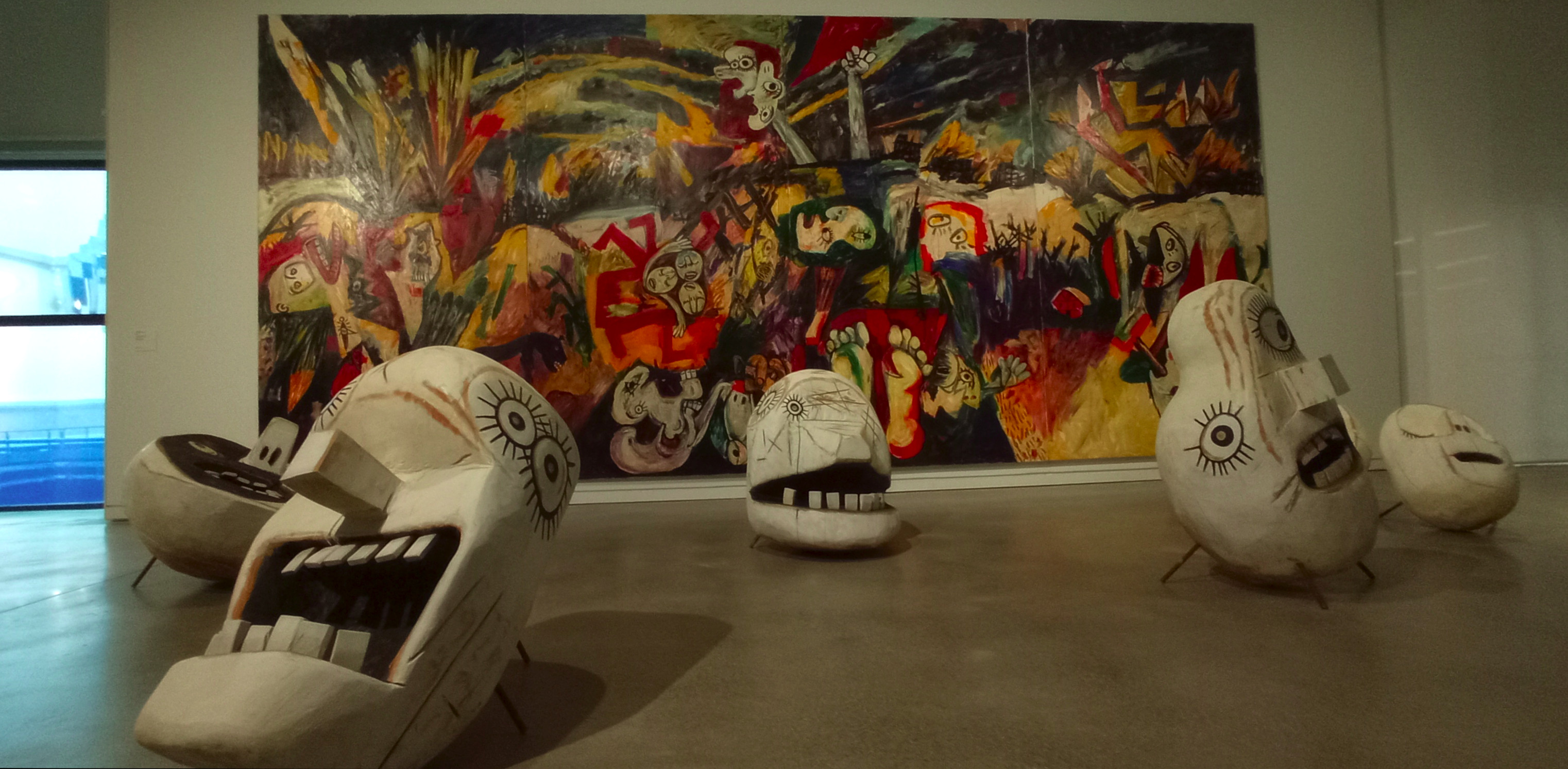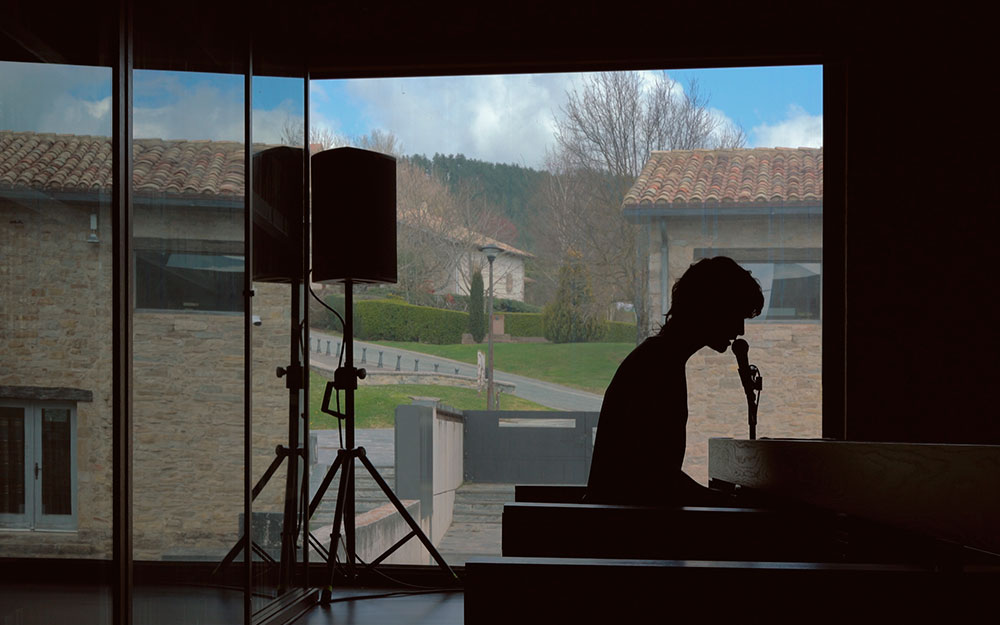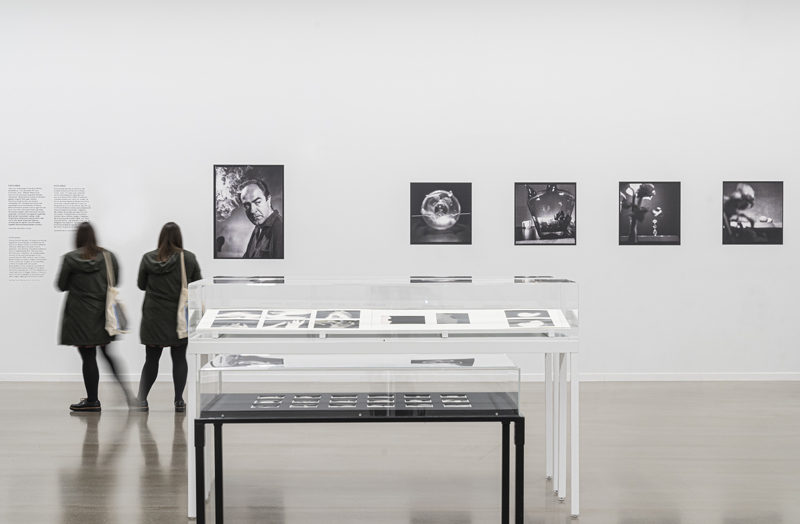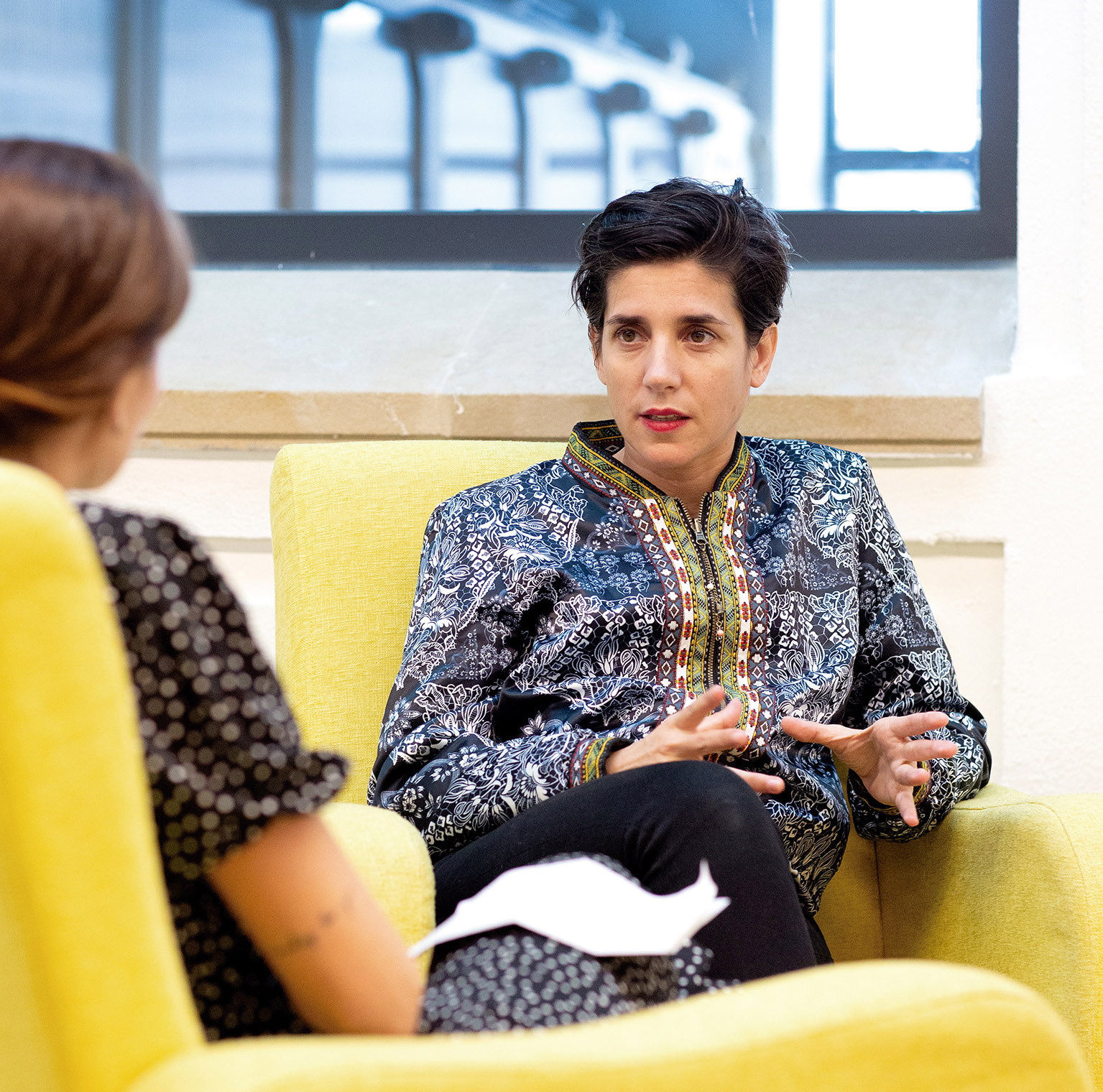How to turn the ecosystem into a puzzle for the moment
- The misunderstandings, the cuts, the resignations, the paralysis, the works and many other circumstances have passed: this week Tabakalera opens its doors to be a dynamic cultural space. The possibilities of the organisations that will fill the packaging with content have been analysed.
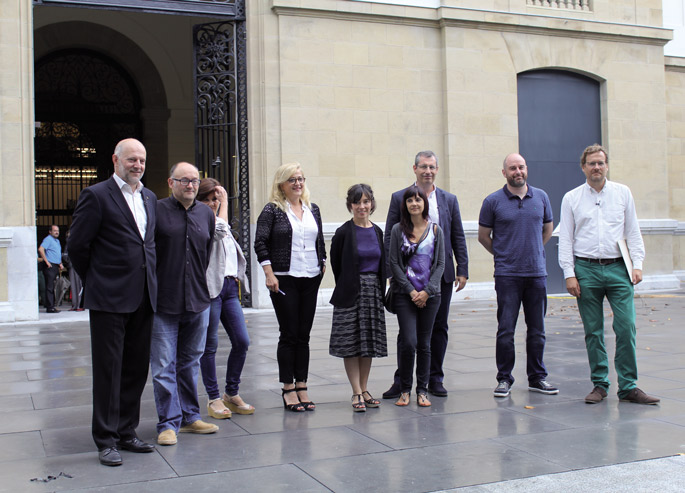
In 2015, yes, Donostia-San Sebastian’s Tabakalera machines will finally start to work by giving everything: it will open its doors to the public on September 11, regardless of the ephemerides of the random evil of that day. Although the coincidences do not end there: it is precisely the same year that the two planes hit the towers in New York that a arduous journey began to turn the tobacco factory into a cultural center. Fourteen years have passed since the City Hall of Donostia-San Sebastián, the Provincial Council of Gipuzkoa and the Basque Government agreed to the recovery of the building. In 2004, they bought the building and started to define the project. To explain the subsequent laps, we would not have enough of all the pages of this journal. In a LUZ 2007, Joxean Muñoz, then director of the project, was read: “The 10-year deadline is the average when such a project is launched. (...) If money is public, it is more complex.” Don't say nobody told him.
Once the waiting time is over, not everything will return to normal, but they have been put to work to present Tabakalera. Ten days before the opening of the doors, the “cultural ecosystem” of the new cultural center was presented, with representatives of the institutions that have confirmed their participation at the moment. The Film Festival, the Etxepare Institute, Zineuskadi, the Basque Film Library and the Kutxa Foundation will be the tenants of the tobacco factory, and along with them San Sebastián 2016 also appeared before journalists, although it will not physically occupy a place in Tabakalera – the capital of culture is tucked on E-Street.
The word of appearance: synergy. They say that what they want is more than meeting in the same building, that they are going to push for common projects to fill with Tabakalera content. Yes, everyone has come to Egia in very different characters and in quite different situations. Firstly, the Basque Filmoteca seems to be the main beneficiary of the change of address: it has long had the need to restore, if it is not much more than a file – and not very comfortable, according to the researchers who have had to work on it – from now on it will be able to program for the public the heritage collected for four decades, as they do in other countries – Catalan may be a close example. The director of the film library, Joxean Fernández, has described the phase that will begin in Tabakalera as “the second birth”.
The San Sebastian Film Festival will take advantage of the building’s choices in the 63 edition that will begin on the 18th. In it you will see films from the Zabaltegi section and have moved to the offices of the festival, which in its first place, the Victoria Eugenia theater, has reserved space for it. A priori, the international film festival can, in collaboration with the film library and Zineuskadi, open new horizons and create an audiovisual triangle. Complementary activities related to cinema can be one of the options of the new area.
Hard to fit parts
Another thing is the situation of the Etxepare Institute and the Kutxa Foundation. The institution born with the mission of spreading the Basque culture abroad is the least traveled among the neighbors of Tabakalera, has worked for the last four years without northern light, giving special importance to the academic aspect and the external vision of the institution itself raises doubts about what they will have to offer to the citizens that approach the building of Donostia. Aizpea Goenaga, director of Etxepare, said in statements to El Diario Vasco that until now the "one-way trip" of Basque culture seemed important in his work, but that Tabakalera will also give them the opportunity to take into account the "return". It's yet to be defined.
The last but not the one, Kutxa Foundation: It entered Tabakalera with a contribution of EUR 13 million and occupied a significant area in the building, the fourth floor. The Kutxa classrooms, which have a tradition of many years, will occupy this space. In addition, they will take advantage of the festival to promote the brand Kutxa Kultur, known in recent years by the music festival held in Igeldo. The president of the Kutxa Foundation, Carlos Ruiz, has stated that they are willing to synergies with other entities, but has underlined the "personality of their entity" in the programming.
They arrive in Tabakalera after the sale of a couple of emblematic premises: Donostia-San Sebastian Boulevard Hall – now a Burger King – and Arrasate Street Theater. Transferred to the building that premieres this week and concentrated the cultural offer, Kutxa can gain a lot in the symbolic legitimization that these types of activities give to society. Another thing is how the public heritage designed for culture has gone into private hands without any kind of debate.
Inauguratu, behin bakarrik inauguratzen da eta behin hasita, asteburu osorako ekintzak prestatu dituzte Tabakaleran irailaren 11tik 13ra. Jarduera berezienen artean, zaintza kolektiboarekin lotutako tailer esperimentala (hilak 11, 19:00) edo Horkonpon tailerra (12an, 12:00) egunero erabiltzen ditugun tresnak konpontzeko saioa, do it yourself espirituarekin.
Zine-aretoa larunbatean estreinatuko da Ivan Zuluetaren Un, dos, tres, al escondite ingles filmaren proiekzioarekin. Musika zaleentzat, ostiralean Pottors ta Klito, Chico-Tropico eta Amy Plinen kontzertuak daude. Eta egun berean zabalduko dute Tabakalerako lehen erakusketa ere: Ikus-entzunezkoaren aldiriak. Informazio osoa tabakalera.eu/eu helbidean.
Emma Kunz's universe is the work of 18 authors. Exhibitions in dialogue with contemporary art. The large images made with pendulum by the Swiss researcher and curator Emma Kunz (1892-1963) complete the rest of the exhibition contemporary artists in dialogue with the work of... [+]
Beñat Achiary went to Barcelona with the Artze brothers to offer them a show, the txalaparta and the vocal improvisation were avant-garde, and not just a requirement for the acts. The slow car, the long road, the half-fitted chair, the sun on the forehead, and so he asked... [+]
Badira erakusketa madarikatuak. Horietako bat izan zitekeen Nestor Basterretxeari Donostiako Tabakaleran dagoen Kutxa Kultur Artegunea aretoan eskaintzen zaiona, inauguratu eta handik astebetera itxi behar izan baitzituen ateak. Ekainaren hasieratik urrira bitartean baina,... [+]









